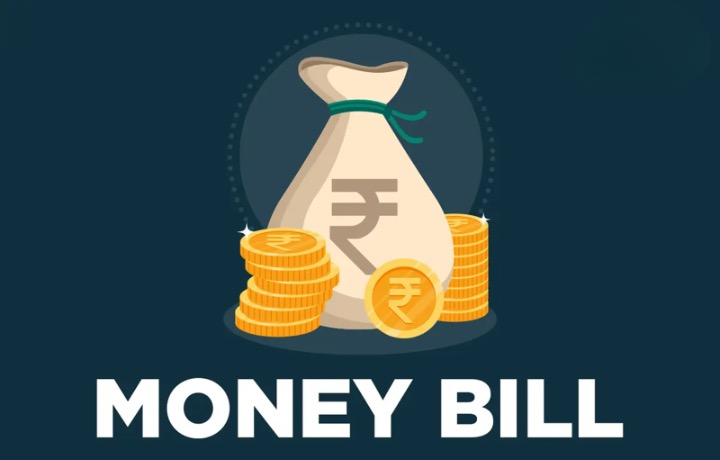Key aspect in poll bond case still alive: Money Bill route

- 19 Feb 2024
Why is it in the News?
Even as a five-judge bench of the Supreme Court struck down the electoral bonds scheme as unconstitutional recently, it saved one aspect of the challenge for another day and a larger bench – the issue of the government using the money Bill route to bring in the laws that introduced the electoral bonds.
News Summary:
- A recent ruling by a five-judge bench of the Supreme Court invalidated the electoral bonds scheme, citing it as unconstitutional.
- However, the court reserved one aspect of the challenge for further review by a larger bench – specifically, the government's use of the money Bill route to enact the laws introducing the electoral bonds.
The Supreme Court highlighted that:
- The examination of introducing these amendments through a money Bill under Article 110 of the Constitution was not addressed.
- The interpretation of Article 110 of the Constitution has been referred to a seven-judge Bench and remains pending judicial review.
What are Money Bills?
- According to Article 110, a money Bill encompasses provisions related to taxes, government borrowing, and expenditure from the Consolidated Fund of India, among other financial matters.
- Article 109 outlines the process for the passage of such Bills, granting predominant authority to the Lok Sabha in their enactment.
- The Speaker is responsible for certifying a Bill as a Money Bill, with the Speaker's decision being final.
- In the past seven years, the government has utilised the money Bill route to introduce various legislations, notably including the Aadhaar Act, 2016, and the Finance Act, 2017.
Other Instances of Government Utilising Money Bill Route:
- Several significant legislations have been enacted by the government through the money Bill route, including:
- The Finance Acts of 2016 and 2018, introduced amendments to the Foreign Contribution Regulation Act, of 2010.
- The Tribunals Reforms Act was passed as a money Bill in 2017.
- The rigorous amendments to the Prevention of Money Laundering Act (PMLA) in 2022, alongside the enactment of the Aadhaar Act in 2018.
- The Supreme Court has upheld the validity of the PMLA amendments and the legality of the Aadhaar Act.
- Notably, Chief Justice of India Chandrachud dissented in the five-judge bench decision that upheld the Aadhaar Act, criticising the government's use of the money Bill route as a subversion of the Constitution.
- However, these laws may still face scrutiny and potential invalidation if the court determines that they were enacted through improper procedure, namely, utilising the money Bill route.
Difference Between Money Bills and Financial Bills:
- While every Money Bill is categorised as a Financial Bill, not every Financial Bill qualifies as a Money Bill.
- For instance, a Finance Bill solely dedicated to tax proposals is deemed a Money Bill.
- Conversely, a Financial Bill may include provisions on taxation or expenditure alongside other subjects.
- The Compensatory Afforestation Fund Bill, 2015, which establishes funds under the Public Account of India and states, serves as an example of a Financial Bill.
The process for passing these two types of bills varies considerably.
-
- The Rajya Sabha lacks the authority to reject or amend a Money Bill.
- Following passage by the Lok Sabha, Money Bills are referred to the Rajya Sabha for recommendations.
- Within 14 days, the Rajya Sabha must return the Bill to the Lok Sabha with its suggestions, which are not binding.
- Should the Lok Sabha reject the recommendations, the Bill is considered passed by both Houses in its original form from the Lok Sabha.
- If the Rajya Sabha fails to provide recommendations within 14 days, the same outcome applies.
- However, both Houses of Parliament must approve a Financial Bill.
- While an ordinary Bill can originate in either House, a Money Bill can only be introduced in the Lok Sabha, per Article 117(1).
- Moreover, only on the President's recommendation can anyone introduce or propose Money Bills in the Lok Sabha.
- Amendments related to reducing or abolishing any tax are exempt from requiring the President's recommendation.
- The essential conditions for a Financial Bill to attain Money Bill status are that it must solely originate in the Lok Sabha, not the Rajya Sabha, and must be introduced upon the President's recommendation.
